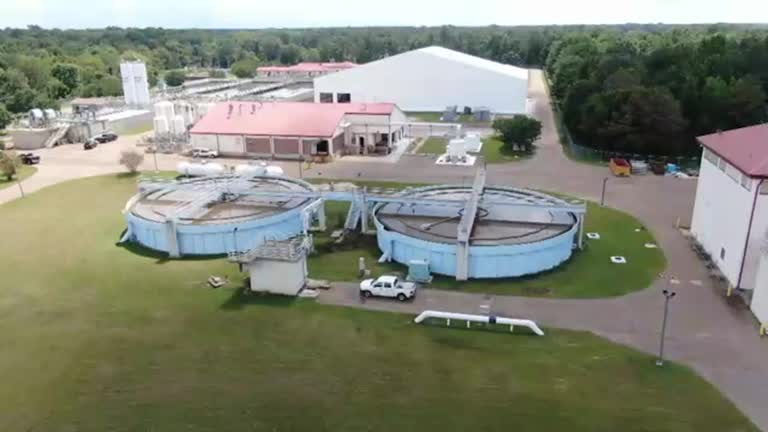The state of Mississippi was scrambling to bring a long-neglected water treatment plant in its capital city back on line a day after it broke down — leaving about 180,000 residents without potable running water, possibly for days.
City officials say the issue at the O.B. Curtis Water Plant was caused by complications from recent Pearl River flooding.
The floods created complications at the water treatment plant, which sits next to a reservoir that drains into the river just north of town, the city said in a statement.
Governor Tate Reeves said state officials on Tuesday were to establish an incident command center at the water plant, which had been operating with smaller back-up pumps after the facility’s main pumps were severely damaged.
Reeves declared a state of emergency for Jackson, with 150,000 residents, and surrounding communities where 30,000 more people live, warning residents not to drink the water.
Success
You are now signed up for our newsletter
Success
Check your email to complete sign up
Furthermore, Jackson Mayor Chokwe Antar Lumumba welcomed state aid on Tuesday (August 30) as Mississippi activated its National Guard to distribute water to tens of thousands of Jackson residents after a long-troubled treatment plant broke down, leaving most of the state capital without safe running water, possibly for days.
But Lumumba’s comments further exposed a rift between the Republican state officials and the Democratic administration of a city that is more than 80 percent African-American.
The governor has alleged the water treatment plant suffered from years of city mismanagement, while the mayor accused the state of being absent from efforts to maintain and update the plant.
“This is a set of accumulated problems based on deferred maintenance that has not taken place over decades,” Lumumba said. “It is a lack of resources and the coordination, and that is why we are excited to have the coordination today. This is what we’ve been asking for. And so we, you know, have open arms in this process to welcome that coordination, welcome that support.”
Governor Tate Reeves declared a state of emergency for Jackson and surrounding communities, warning the area’s nearly 200,000 residents to avoid drinking tap water. He also called up the state National Guard to assist in efforts to bring relief to the city, which was battered by record rainfall and flooding over the weekend.
The breakdown occurred on Aug. 29 when floodwaters seeped into the understaffed and poorly maintained O.B. Curtis treatment plant. An emergency team had the plant working at 40 percent capacity as of Aug. 30, senior state health officer Jim Craig said, adding that a temporary pump was expected to be installed on Aug. 31 to increase capacity further.
But the system was still short of sufficient water pressure to guarantee service citywide. Officials said they could not estimate how many homes were cut off.
The shutdown created havoc for businesses, and Jackson public schools, with nearly 21,000 students, were forced to move classes online as they had done during the coronavirus pandemic.
Even before the crisis, the city had been under a boil water notice for the past month due to “elevated turbidity levels,” which makes the water appear cloudy.
A pair of winter storms in February 2021 caused most residents in Jackson to briefly lose running water, and a year ago the U.S. Environmental Protection Agency issued an emergency order saying the water supply could contain E. Coli, according to Mississippi Today.
Each side had been offered differing accounts of what happened, though they came to agree on significant facts by Tuesday afternoon.
The governor, who previously blamed pump failures, affirmed what the mayor had said: that floodwaters entered the treatment plant, altering the chemistry of the water, rendering the existing treatment inadequate, and forcing a shutdown.
The plant sits next to a reservoir that drains into the Pearl River just north of town.
Governor Reeves also backed off his previous statement that untreated water went to customers, which Mayor Lumumba insisted was untrue. Craig, the senior state health official, said water that was “not optimally treated” got pumped into homes.
The White House said on Aug. 30 that President Joe Biden had been briefed on the situation, and administration officials were in contact with state and local officials.
(Source: Pavithra George, Arlene Eiras, Reuters)














